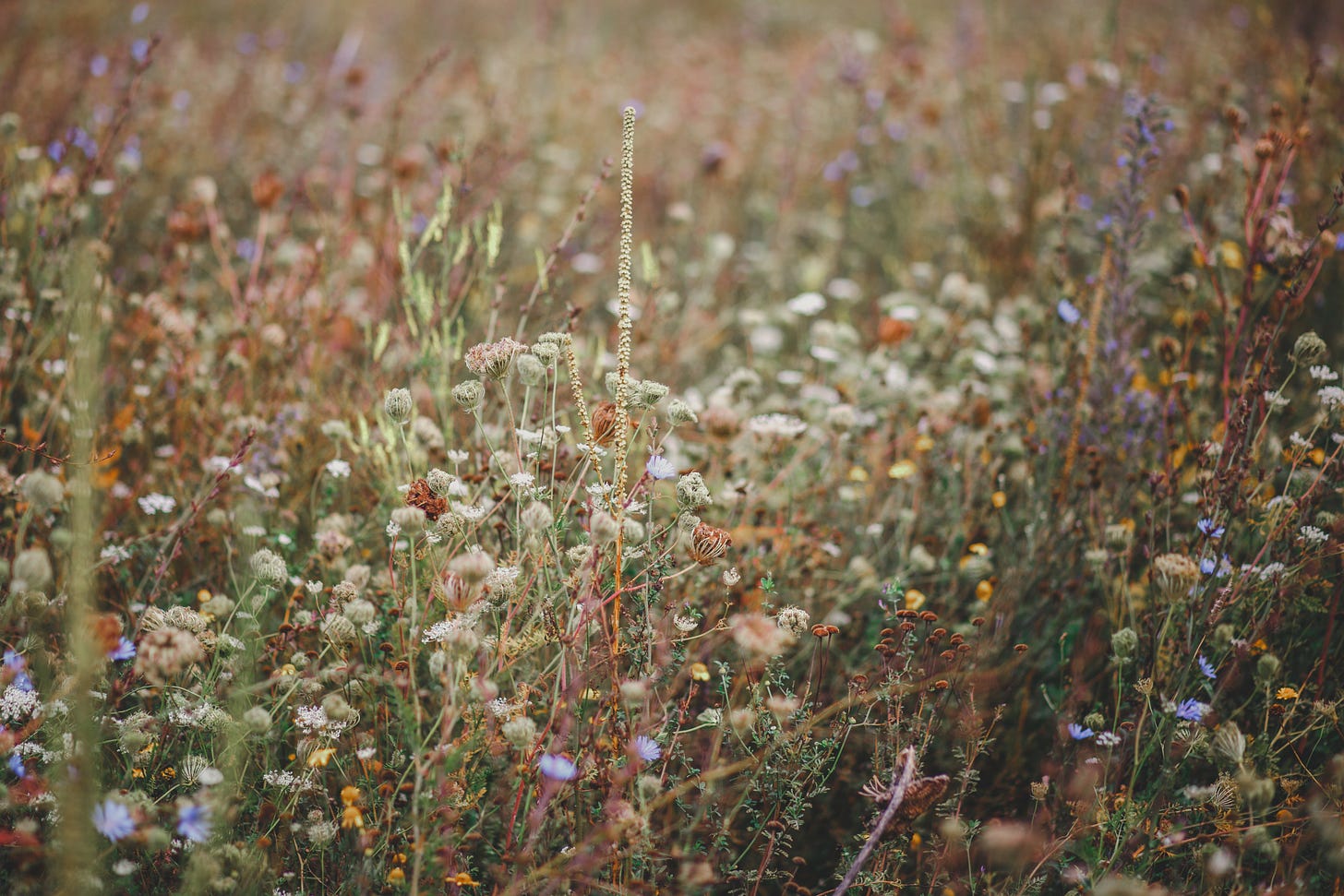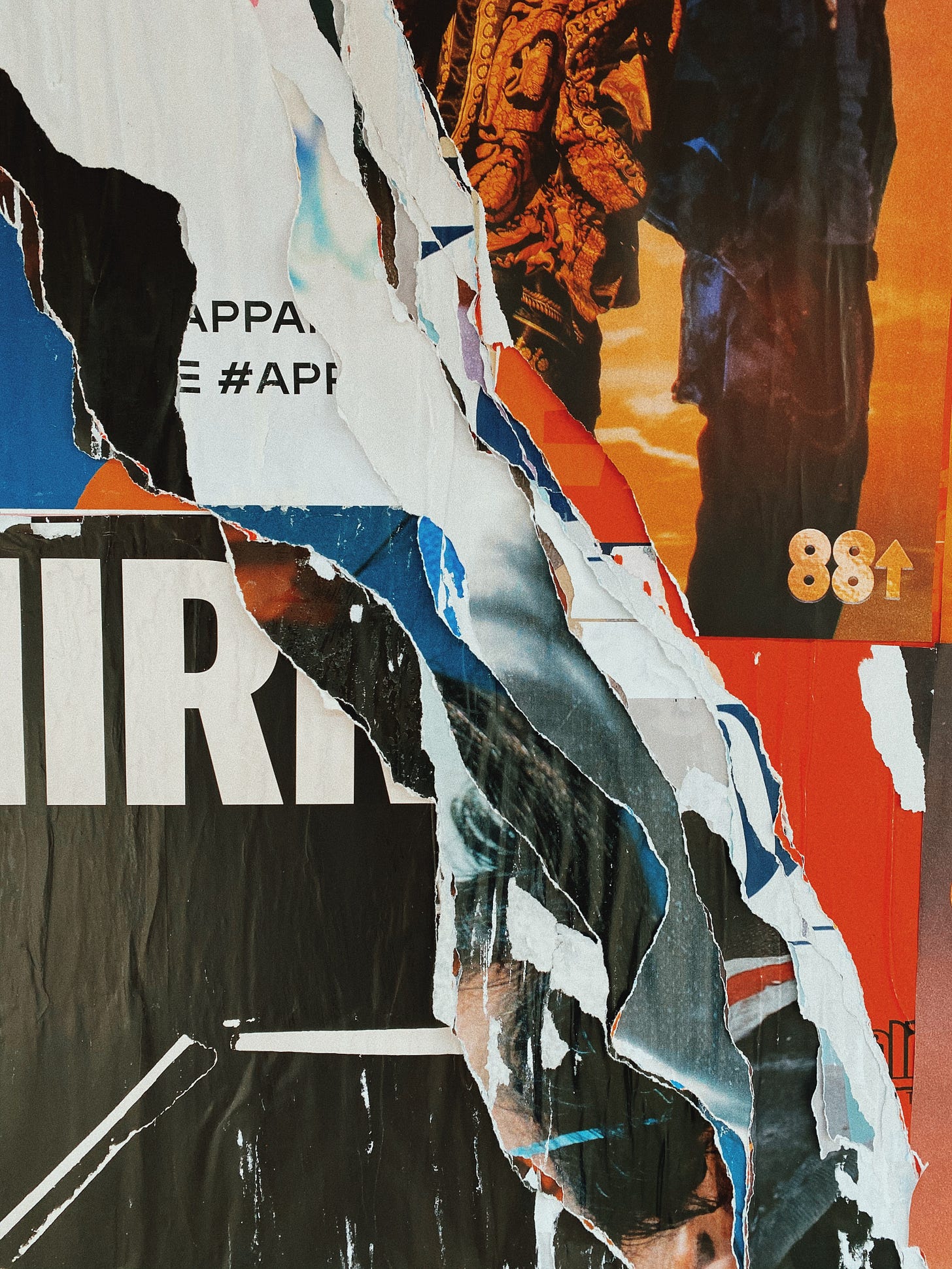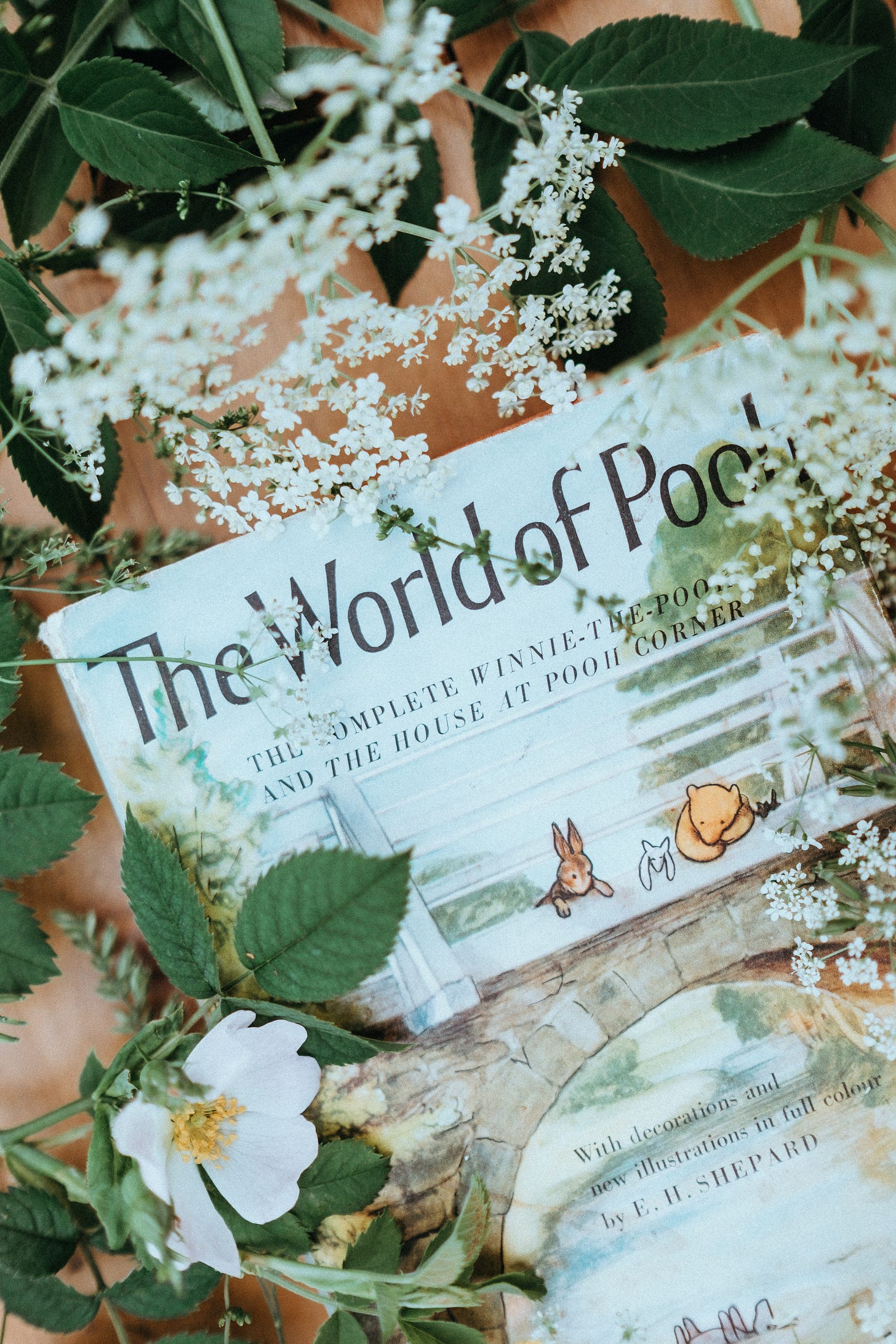All Their Edges Overlapping
A poetry collection exploring how metaphor can make difficult themes more accessible and, ultimately, help us to begin rewriting our own thorny narratives.
One of the reasons I find poetry so compelling is its ability to help me put words to events, feelings, and concepts I wouldn’t otherwise be able to communicate—at least, not very well1. Poems have a way of packing a punch with their brief form and precise storytelling—and more specifically—their ability to bring clarity through metaphor.
My favorite english teacher of all time (shout out to Mr. Brown in eleventh grade language arts!) saved my life in a thousand ways that have nothing to do with literature—more than I could fit here. However, one of the specific english lessons I do recall vividly was his eagerness to reveal how metaphor uncovers deeper meaning. We read The Great Gatsby, To Kill a Mockingbird and The Catcher in the Rye (among many others) and, as he pointed out all the rich, hidden metaphors, fireworks started going off in my brain. It was probably the first time I ever really understood how stories are more than one dimensional. Thank God for that.
This has stuck with me since—the power in telling a deeper truth “through the back door” when nobody is expecting it.
(I also would like to give credit to the two individuals who influenced my poems most this month. They are: 1.
2, and 2. Taylor Swift, and honestly—nothing could make me happier.)I hope at least one of these metaphors resonates with you, too.
Happy reading, friends. xo
This collection contains four poems that rely heavily on metaphor to explore themes of reclaiming the self, taking up space, healing from and redefining family, and finding resonance with our children. 01 - ghost 02 - weeds 03 - collage 04 - song
The Haunt
I spent years asking how to be anything other than your good ghost, but you don’t believe in ghosts, do you? Surely you’ve heard stories of spirits who long to be freed from their floating, long to show themselves to the living who go on living, resting easy, believing what they’ve buried remains silent underground. I am asking you to believe this ghost story, asking you to hear how my chains rattle against my ribcage as I slip back through the slats, watch how I pull my skin on tight over my bones, claw myself out of this tired grave, first one hand, then two, how I emerge, ready for the living haunt.
Weeds
You are growing like a weed, he said, chipper, as if all children love to be compared to the dandelions he yanks and sprays and curses. No no, I said, I am growing like a flower. Even then I wanted to be pretty, stand tall and thin, take up my due space in the soil—no more, no less. I want to tell him, now, how he was right all along, how I am growing like a weed— fast, pervasive, reckless, wild. I want to show him how I stand vivid and vibrant during the drought, how I sprout in the cracked concrete, how I’ve learned to flourish in the poorest conditions. I want to say to him, Look, look how swiftly I sprout up again after you rip out my roots. Look, look how quickly I take over your tidy lawn while you’re not looking.
Collage
She chops cheerfully through translucent pages with the scissor’s unforgiving mouth, leaving behind jagged teeth, a black hole in the middle of the ocean, the trunk of an apple tree chopped down with her blunt blade. I am familiar with this kind of art, with the satisfying snip, the surgical incising of pages. I am familiar with leaving slick wounds on slippery pictures, some happy looking child left grinning through the holes. True, this kind of art is messy, irreverent—crumpled paper, sharp slivers everywhere, some floating face, some lopsided house, its roof sheared clean off. But see what she holds in her hands, how she has pasted pieces together to make a whole—a sturdy home, some weeds she calls wildflowers, as much sky as the paper will hold, a man, a woman, their two children, all their edges overlapping.
Pooh Bear
There I sat, slick and bleeding, bleeding, watching numbly your blue body pink and lurch to life again. Finally—a wail. Finally—your round Pooh Bear belly pressed against mine. What I slurred to the nurse, my body in shock, my voice pitched too high, Why won’t she look at me why can’t I find her why can’t I just find her? Breathe, she said, either to me or to you, rubbing your body briskly with a towel. Two weeks later, it happened. Was it that I had begun to return to my body? Was it that you watched my face’s fuzzy frame give way to tired eyes and a singing mouth? Or was it the familiar song about sunshine, its melody rising and setting? Whatever it was, I found your eyes— I mean your spirit in your eyes—felt it link fingers with mine. What I am trying to tell you is, I do not believe in magic, but I do believe in mystery. What I am trying to tell you is, somehow, you are two now and there will be times where we say Why won’t she look at me why can’t I find her why can’t I just find her? And what I am trying to tell you, Pooh Bear, is that I never stopped looking, will never stop looking, never stop singing the familiar sunshine melody for you.
Thanks for reading, friends.
Here’s to exploring metaphors that help us in our healing.
xo,
Krista
Ask my close friends how I am when we go out for dinner. I am not excellent at communicating deeper truths verbally (though I do love deep conversations). My voice is strongest as a writer. Give me paper and a pencil, and I can write you a poem about whatever we’re discussing 10/10 times. Here is a case in point.
Maggie uses a lot of “ghost” language in her memoir, You Could Make This Place Beautiful, and I’ll tell you what—it wrecked me. My story behind my ghost poem is different than Maggie’s, but the truth is, too many of us know what it is to feel like a ghost in at least one of our important relationships. Writing about it is one way to feel free.
Photos by Jasmin Schreiber on Unsplash, Photos_frompasttofuture on Unsplash, vision webagency on Unsplash, Jazmin Quaynor on Unsplash, and Annie Spratt on Unsplash
Do you like reading To Tell You The Truth? Because I love writing it.
If you want to support me and my work, there are a few ways to do that:
Buy Me a Coffee (Any “coffee” money I receive goes straight back into my work via workshops, classes, mentorship, and more).
Share To Tell You the Truth with a friend!
Subscribe for free to receive all my posts in your inbox. OR, upgrade to a paid subscription to further support my creative work.










Thank you for sharing these. They are breathtaking x